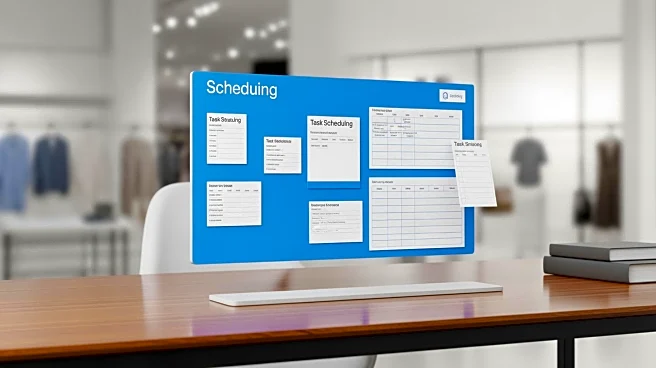Rapid Read • 8 min read
A recent survey conducted by the Global Payroll Alliance reveals that 61% of workers experience decreased productivity during the summer months. The survey, which included 1,132 participants, found that 30% of respondents lose between 30 and 60 minutes of productive work time each day due to factors such as tiredness, uncomfortable office temperatures, and difficulty maintaining focus. Matt Jenkins, leader of business improvement consultancy Dream and Leap, suggests that employers should offer flexible working arrangements to help maintain productivity during hotter weather. Jenkins emphasizes the importance of equipping employees with skills to manage their time effectively and creating an environment that supports optimal work performance.
AD
The findings highlight the need for businesses to adapt to seasonal changes that affect employee productivity. With 83% of survey respondents advocating for employers to take hot weather more seriously, companies may need to reconsider their workplace policies and environments. Offering flexibility, such as allowing employees to work according to their natural rhythms or providing alternative workspaces, could enhance productivity and employee wellbeing. This shift towards flexible work arrangements aligns with broader trends in workplace management, emphasizing autonomy and results over rigid schedules.
Employers may need to implement strategies to address the challenges posed by hot weather, such as adjusting office temperatures, improving ventilation, and offering hydration solutions. Training employees in time management techniques like 'eat the frog' and timeboxing could also be beneficial. As the demand for flexible work environments grows, companies might explore new policies that empower employees to work at their own pace and comfort, potentially leading to increased productivity and job satisfaction.
The survey results suggest a cultural shift in workplace expectations, where traditional office dress codes and rigid schedules may become obsolete. As employees seek greater autonomy and flexibility, businesses that adapt to these changes could gain a competitive edge in attracting and retaining talent. This evolution in work culture may also influence broader societal norms around work-life balance and employee wellbeing.
AD
More Stories You Might Enjoy











